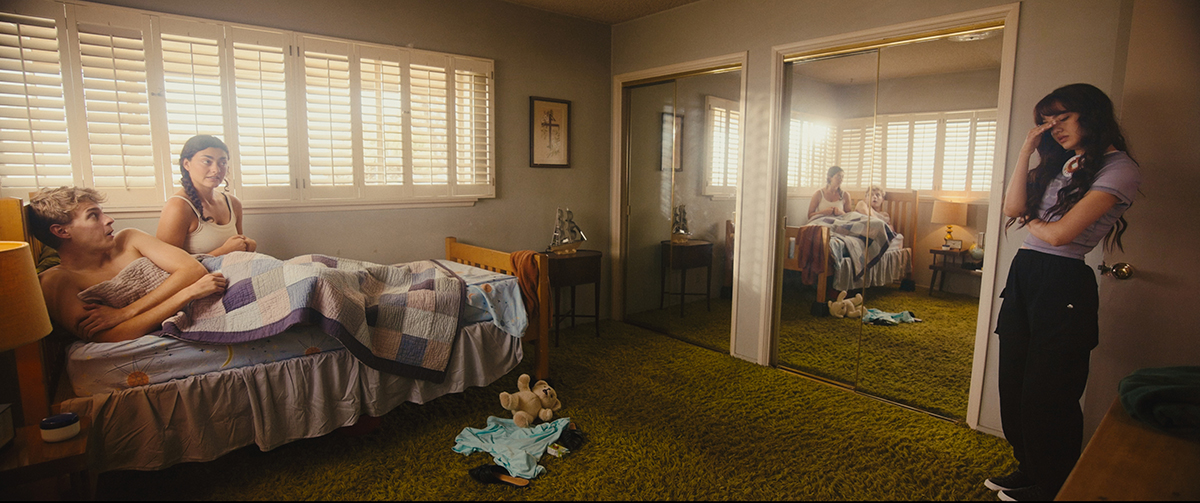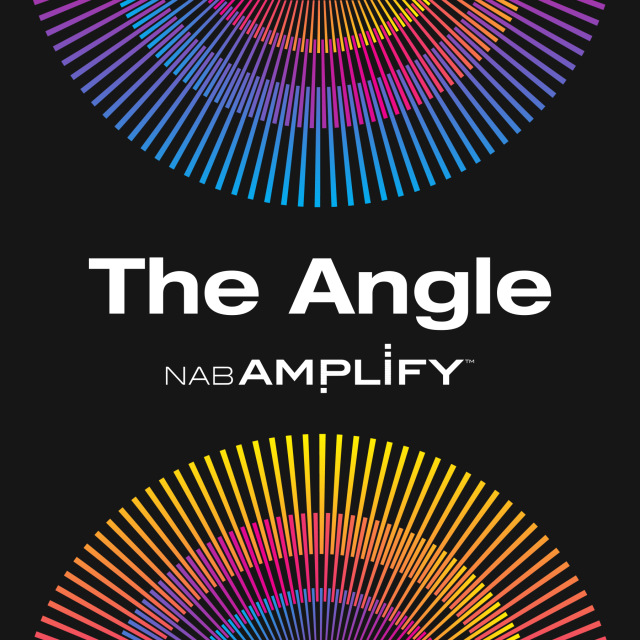
TL;DR
- Leo Matchett, co-founder and CEO of Decentralized Pictures, says the blockchain has the potential to revolutionize the entertainment industry.
- Decentralized Pictures is a blockchain-based platform where filmmakers can submit movie pitches and pay a submission fee in the project’s native token, FILMCredits. It was launched in 2021 by Matchet, American Zoetrope’s Michael Musante and Roman Coppola.
- Matchett and fellow DCP board member and producer Liz Destro will appear at NAB Show in a session entitled “Decentralized Pictures and the Future of Fair and Transparent Filmmaking.”
- The panel discussion, held on Sunday, April 14 from 4:00-5:30 PM on the Main Stage, will also feature “Holy Smokes” filmmakers Isabella Ares and Gabby Fiszman and actor Mena Suvari, as well as a special screening of the film. Register here to attend with code AMP05.
The writers’ and actors’ strikes last year offered clear evidence that the current operating model in Hollywood is not sustainable. Could blockchain technology address the challenges by opening access to independent filmmakers and sharing reward more equitably?
“The blockchain has the potential to revolutionize the entertainment industry,” says Leo Matchett, co-founder and CEO of Decentralized Pictures. “It can help create a more transparent and equitable industry, and it can also connect fans with their favorite artists in new and innovative ways.”
Decentralized Pictures, a blockchain-based platform where filmmakers can submit movie pitches and pay a submission fee in the project’s native token, FILMCredits, was launched in 2021 by Matchet, Michael Musante, VP of production and acquisitions at American Zoetrope, and Roman Coppola, and with $50,000 in documentary funding from The Gotham Film & Media Institute. Since then, it’s been helping to transform the future of independent cinema.
Matchet, Musante and fellow DCP board member and producer Liz Destro will appear at NAB Show in a session entitled “Decentralized Pictures and the Future of Fair and Transparent Filmmaking.” The panel discussion, held on Sunday, April 14 from 4:00-5:30 PM on the Main Stage, will also feature “Holy Smokes” filmmakers Isabella Ares and Gabby Fiszman and actor Mena Suvari.

“We are taking a novel approach to providing opportunities to filmmakers, and we’re relying on audiences to tell us which content and which filmmakers are most deserving,” explains Matchett of their Web3 finance platform.
Rather than taking a retrospective data driven approach that studios use to base decisions on which projects to greenlight, DCP polls its communities of members in real time about which of projects submitted to it should receive further finance or support. Members, or “reviewers,” give each project a ranking score in value sets around metrics like script, characters or plot lines and social impact.
“This is done on blockchain as a peer to peer payment between the submitter and the reviewer,” Matchett says. “So it is literally the opposite of Kickstarter. A person who is looking for financing pays a fee into a smart contract that dynamically pays reviews. They are peer-to-peer paying for peer review and the data derived from those payments and the incentivized behavior of review is what indicates the most deserving filmmaker to move forward with. All the data is preserved, auditable and mutable on the chain making it a fair and transparent way of deciding who should get opportunities to tell stories.”
He says the current system is limiting opportunities for filmmakers. “It’s a lot about who you know and who you get in the room with. It’s about access to money and your proximity to the industry or your past experience. However, Decentralized Pictures are taking unsolicited material which we outsource to the world to help us with the decision making. It is audience driven content in which the audience determines, which content they should be presented with.”
DCP’s approach is paying off. They have already produced and financed several documentaries and a pair of narrative features, including Calladita, a satire directed by Miguel Faus, which utilized NFTs (digital collectibles) to finance production and increase audience participation.
The thriller Cold Wallet directed by Cutter Hodierne premiered at SXSW 2024 and was judged by director Steven Soderbergh to be a “smart, spiky, off-center take on the vigilante genre.”
Holy Smokes at NAB Show
Its most recent project is the short comedy film Holy Smokes created by Fiszman and Ares and starring Suvari, all of whom will share their involvement in the project at NAB Show following a special screening of the film.
“Filmmaker Kevin Smith read the top scripts that were submitted to us and curated by the community, and with his producer [Liz Destro] they selected Holy Smokes, which was the number one rated script.”

At a time when studios are concentrating on very high-budget, franchise-led, merchandisable tentpoles “built on known IP,” they are locking out indie filmmakers, says Matchett.
“What has also contributed to the decline of indie cinema is that streamers have significant power in the industry,” he says. “With that comes no real need to make offers to purchase content that has any reflection of what the budget was. You can spend $10 million making a film and get a million dollars from a streamer for an exclusive two year deal but you are stuck with a tough decision. Your film could get shelved and never seen be anyone or if you don’t take their money you risk a net loss. It’s a difficult distribution environment right now.”
He continues: “There used to be secondary release window with DVD and home video sales but that has pretty much been destroyed by streaming. Part of the reason there are larger budget tentpole film is to mitigate the risk of needing to have a significant portion of the revenue come through box office. You don’t have the secondary punch of revenue that you used to get. Instead, you are forced into a deal with a streamer.”
By highlighting their experience on the DCP platform, the panelists will shed light on the transformative shift towards greater democracy within the film and TV industry.
“As the film industry continues to evolve,” Matchett says, “discussions like these pave the way for a more accessible and inclusive future where the voices of audiences hold considerable sway in determining the success and recognition of films and filmmakers.”

Why subscribe to The Angle?
Exclusive Insights: Get editorial roundups of the cutting-edge content that matters most.
Behind-the-Scenes Access: Peek behind the curtain with in-depth Q&As featuring industry experts and thought leaders.
Unparalleled Access: NAB Amplify is your digital hub for technology, trends, and insights unavailable anywhere else.
Join a community of professionals who are as passionate about the future of film, television, and digital storytelling as you are. Subscribe to The Angle today!

